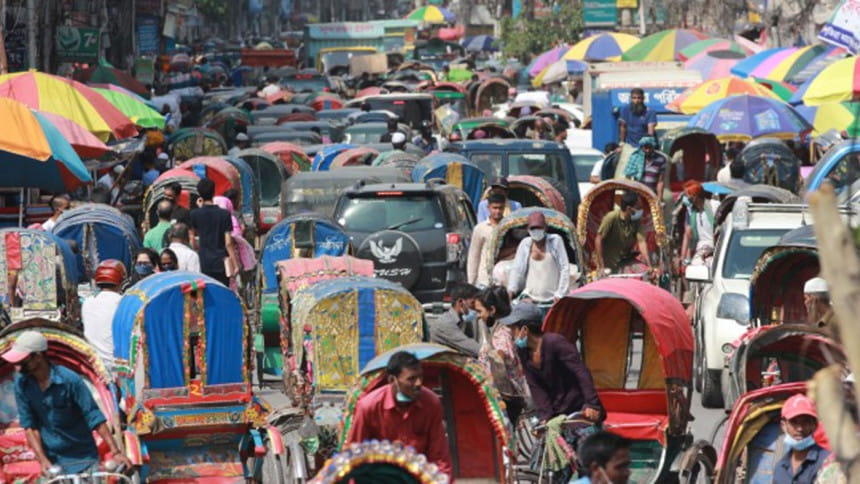Caught between the devil and the deep sea

Not surprisingly, the administration finds itself on the horns of a dilemma. With the violent onslaught of the second wave of Covid-19 in various mutated forms deadlier than previous ones, the government has no other alternative but to go for a lockdown (although belated), since this is the best way of preventing transmission of the virus. This is the only way to save lives. Otherwise, Bangladesh might have to experience and endure a situation like what India is facing, and the daily cases may be doubled by the end of May, with the number of fatalities rising in proportion.
However, going for a total lockdown throws up other challenges, the most acute of which is providing for the marginalised members of society—those that render their labour daily to provide food for their families. As it is, the coronavirus is likely to add to the poverty rate by nearly 10 percent. This is a problem that is not unique to Bangladesh. Even in countries like the US, people had to stand in long queues to collect food packages and monetary help had to be provided to less affluent families. The Bangladesh government undertook several programmes for such contingencies last year. This year we see very few such programmes, especially in a coordinated manner on a national level.
It is undesirable that there should be a lack of coordination in planning and enforcement of the lockdown, which has now been extended to May 5. We find very little rationale in keeping the malls and markets open during this period. All sorts of public vehicles were off the roads last week, while most of the major roads were chock-a-block with cars during this time. While the well-to-do went about their business as usual, it was the rickshaw pullers and three-wheeler drivers who had to suffer police wrath. The big shopping malls were able to re-open easily, even as the smaller shops struggled. We also wonder if it is within the remit of the police to alter shop timings—as they did by extending the timings to 9 pm from the earlier announced time of 5 pm—or the civil administration.
We have been caught off guard again. The hospitals are saturated. The proposed extension of facilities in public hospitals to cater to the pandemic has not materialised. And there is a likelihood that we may run out of oxygen if the number of critical patients increases. The only way to stem the tide is to keep every one off the roads and in their houses completely, but that can be done only in a well-coordinated and coherent manner. Lockdown means lockdown, no half measures. During this period, the marginalised must be supported through both public and private efforts. The lockdown will otherwise be more or less meaningless, as, regrettably, it has been so far.

 For all latest news, follow The Daily Star's Google News channel.
For all latest news, follow The Daily Star's Google News channel. 



Comments